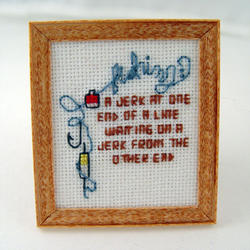Have you ever turned down a fishing trip because you were insecure about the whole ordeal? Fishing is a fun hobby for a lot of people, and by taking the time to learn some basic tips and tricks, you will be able to see just how fun it truly can be.
As a novice fisherman, do not choose the most costly gear out there. For the average fisher there is simply no advantage for purchasing expensive equipment. It will neither make fishing more enjoyable nor increase your success. Choose the gear that is right for your pocketbook, and you will have extra cash in your pocket when you go on your fishing trip.
Birds Love
You should always wear sunscreen when fishing – even in cool weather. A lot of times, the sun shining down on water causes a glare, and you will want to be able to avoid a sunburn while you sit.
Keep an eye on the birds while you fish. Birds love to flock around schools of fish, so you will most likely find some great fish where you see the birds flocking. Birds love to eat fish, and they dive towards the water to catch them. Therefore, to help you increase your chances of success watch the birds behaviors closely.
If you are a beginner at fishing, it is essential that you have a solid idea about what you are doing. Learn as much as you can before you take your first fishing trip. There is a wealth of information available that will help you with learning how to fish properly before you jump in. Catching big fish will be easy with this knowledge!
Always familiarize yourself with local fishing laws and regulations. Specific areas may prohibit fishing at certain times of the day or only allow certain types of bait. If you are unsure, speak with your local government office.
Sharp hooks are crucial for the successful fisherman. If it could scratch your fingernail lightly then it’s good enough for you to use. If it doesn’t, you either need to sharpen your hook or else replace it.
Anyone fishing should learn how to properly set the hook. This step is especially important if you plan to use lures. You do not want to lose a fish after catching a bite because your hook wasn’t set well.
Try not to fly fish when it is too windy. If the wind is too strong, accuracy with casting your line could be an issue. The best time you should try fly fishing is when it’s early morning or evening when there is not as much wind. If it gets too windy simply turn your back towards the wind and fish.
Quality Ones
Be quiet when fishing. Loud or sudden noises can frighten fish away in no time! If you remain calm and quiet, keeping your voice in a whispery tone, you are going to be more likely to help fish take your bait and more likely to capture that big catch.
When it comes to selecting a rod, don’t be afraid to shop around for a durable, higher quality model. The lower quality rods will break under pressure and are not as well tested as the higher quality ones. You will save money in the long run by buying one high-quality rod rather than multiple low-quality ones.
Decide on which color of bait to use, based on the surroundings and light conditions at the location where you will be fishing. A good rule of thumb is to choose a bait that your fish will be able to see. If your fishing environment is murky, compensate for that with brightly-colored bait. However, if you are fishing in clear water, use dark colored lures that contrast the surroundings.
Try to find ways to use all of the fish you catch. It may look impressive to have a huge bucket overflowing with fish, but it is important to only keep what you can realistically eat. If you catch too many fish, release the smaller ones or give them to friends and family.
Keep track of the weather forecast and any changes in the weather. You might not want to go out onto the water if there is a thunderstorm brewing. Know what the weather is going to be before going on your fishing venture.
Stay calm when you are wrestling with a big fish. Avoid reeling in a fish while it is actively swimming away. Make yourself relax. Let the drag and the rod handle the situation. As soon as the fish is hooked, start setting your drag. Always make sure that your rod is aimed towards the fish at about a 45 degree angle.
Equipment, knowledge of catching different kinds of fish, and skill in using your knowledge are all part of the great sport of fishing. While it’s an easy sport to learn, success comes from experience and education. What you’ve read here can help you to conquer the fish in the water, and bring a few home for dinner.

